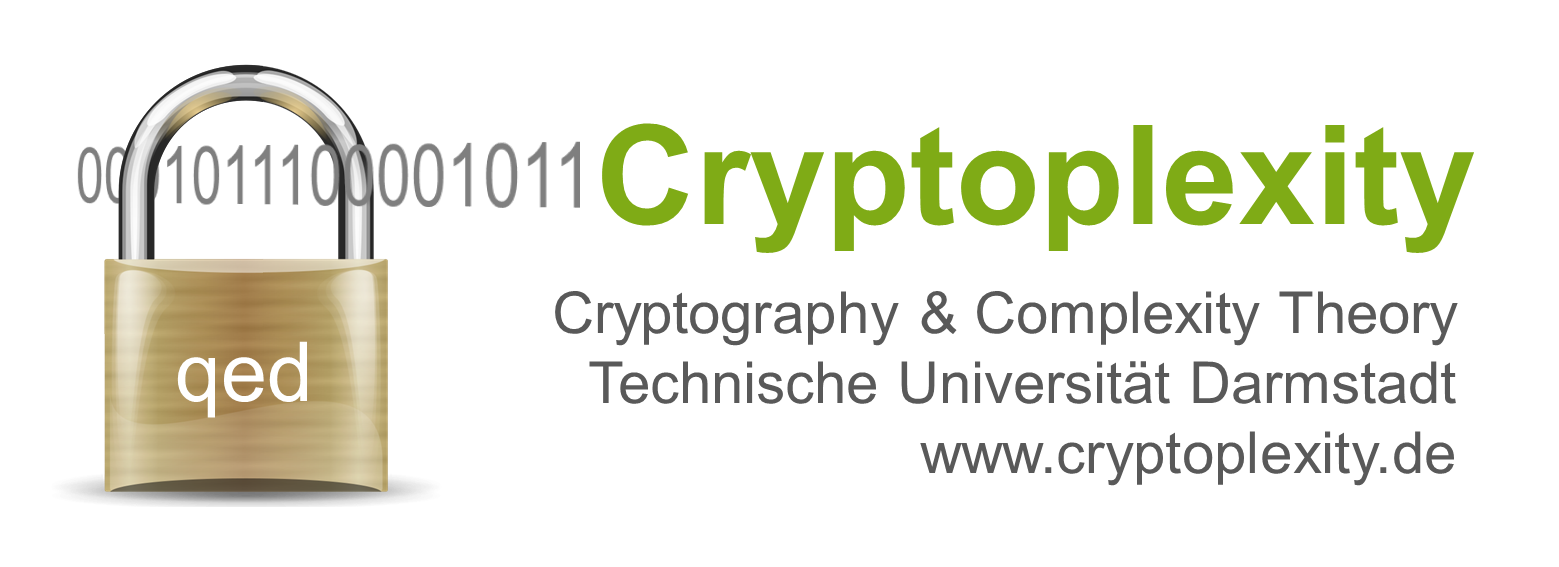
Scrutinizing Black-Box Separations in (Quantum) Cryptography (BBQCrypt)
Funding: DFG, 02/2011 – 06/2016
Background: The purpose of the Heisenberg-Program is to “provide outstanding researchers who fulfil the requirements for appointment to a long-term professorship with the opportunity to prepare for a leading position in science and research and to use the time to work on an advanced research topic. … In addition to successfully taking part in the DFG's review process, applicants for a Heisenberg professorship must also participate in the host institution's professorial appointment process. The host university must create a position and indicate how this position constitutes a structural development. In addition, the university must guarantee that it will assume funding for the position from its own budget once the DFG's five-year funding period has expired, provided this is legally admissible in the respective state.” (DFG)
Content: Modern cryptography to a large extend deals with the design of secure protocols which achieve a clearly stated security goal in a well-specified attack model. Any suggested protocol needs to be accompanied by a security proof demonstrating that the goals are met; without a proof, protocols are not considered secure, even if they appear to be reasonably strong. Today a special type of proof, called black-box reduction, is pervasive in cryptography and provides a very powerful tool to analyze protocols. For some important problems it has been proven, though, that black-box reductions cannot exist, thus showing the hardness of finding a proof that the desired security goals are achieved. These negative results are summarized under the name black-box separations.
The goal of the research project “Scrutinizing Black-Box Separations in (Quantum) Cryptography” (BBQCrypt)" is to burst open the doors to new design methods for cryptographic protocols, overcoming widely-accepted limitations due to black-box separation results. Non-black-box results are at a very early stage of scrutiny, and black-box separations are still viewed as strong evidence that some limitations are inherent, especially in the area of practical cryptographic constructions. This confined way of thinking, however, forecloses ambitious efforts to find solutions beyond the current state of knowledge. The project should therefore help to overcome this narrow view and to break new ground for cryptographic tools and constructions.
Note: The Heisenberg support comprises the funding for the professorship and for a formally independent research grant, BBQCrypt. The BBQCrypt Grant started in Feb 2011, whereas the Heisenberg-Professorship started only in July 2011.
Funded Members: Paul Baecher, Pooya Farshim, Victoria Fehr, Marc Fischlin.


